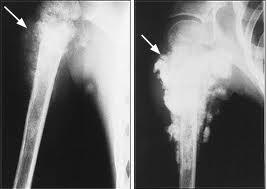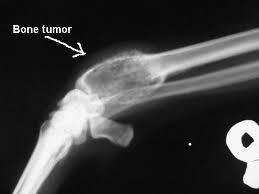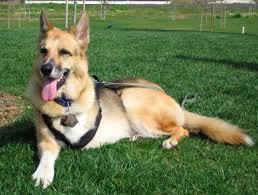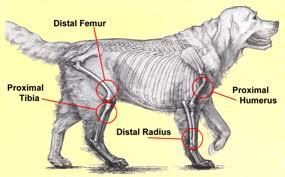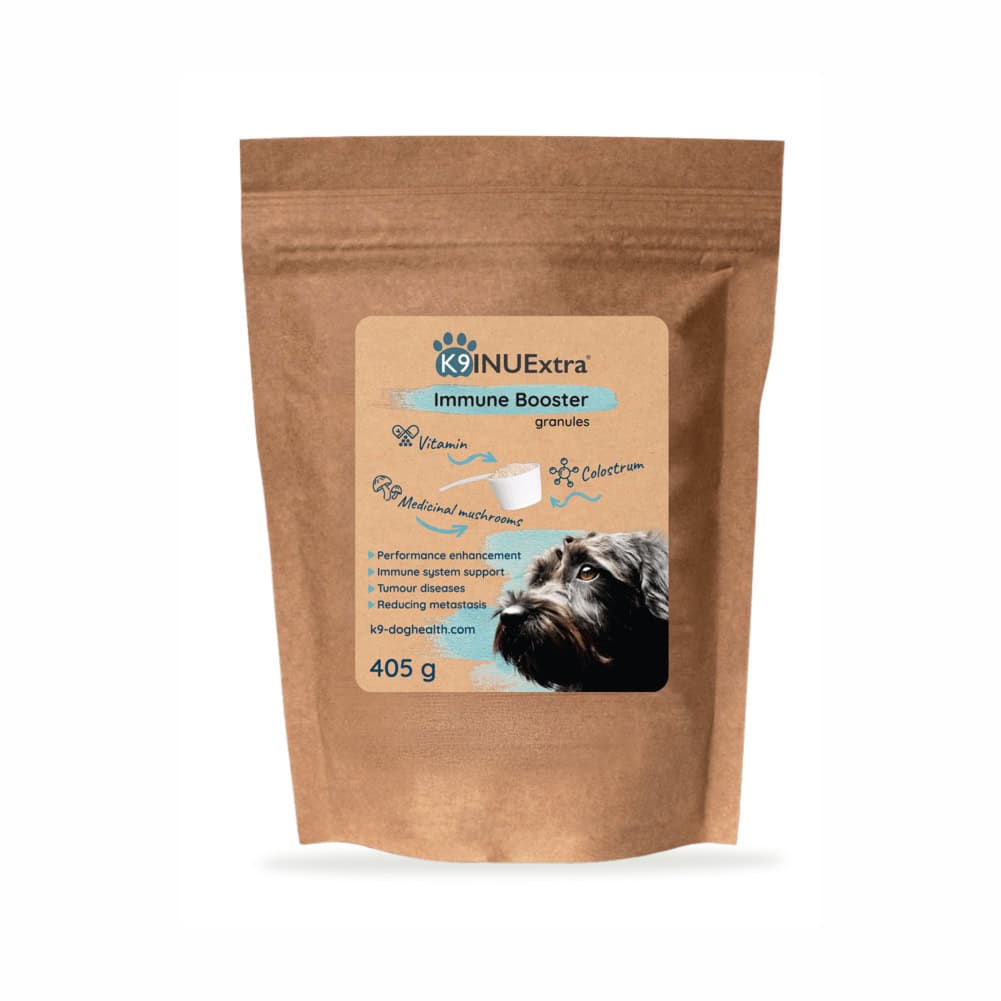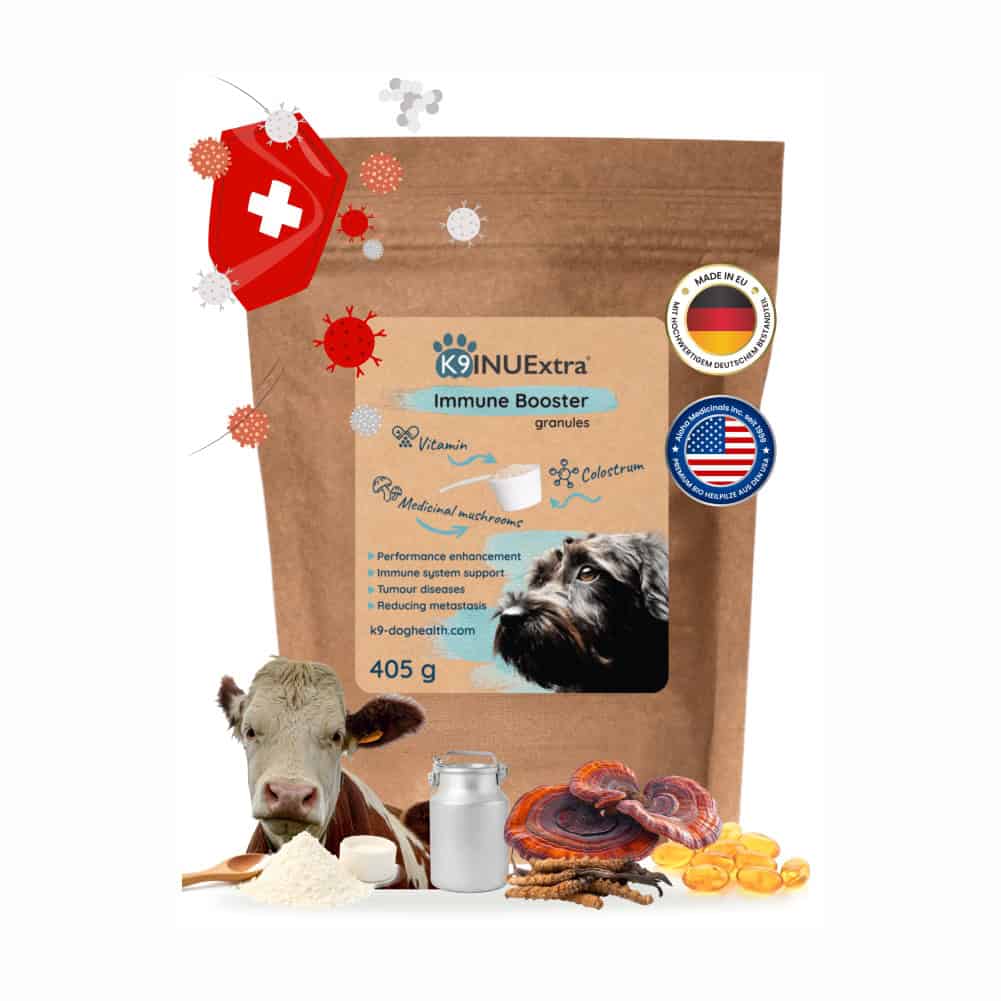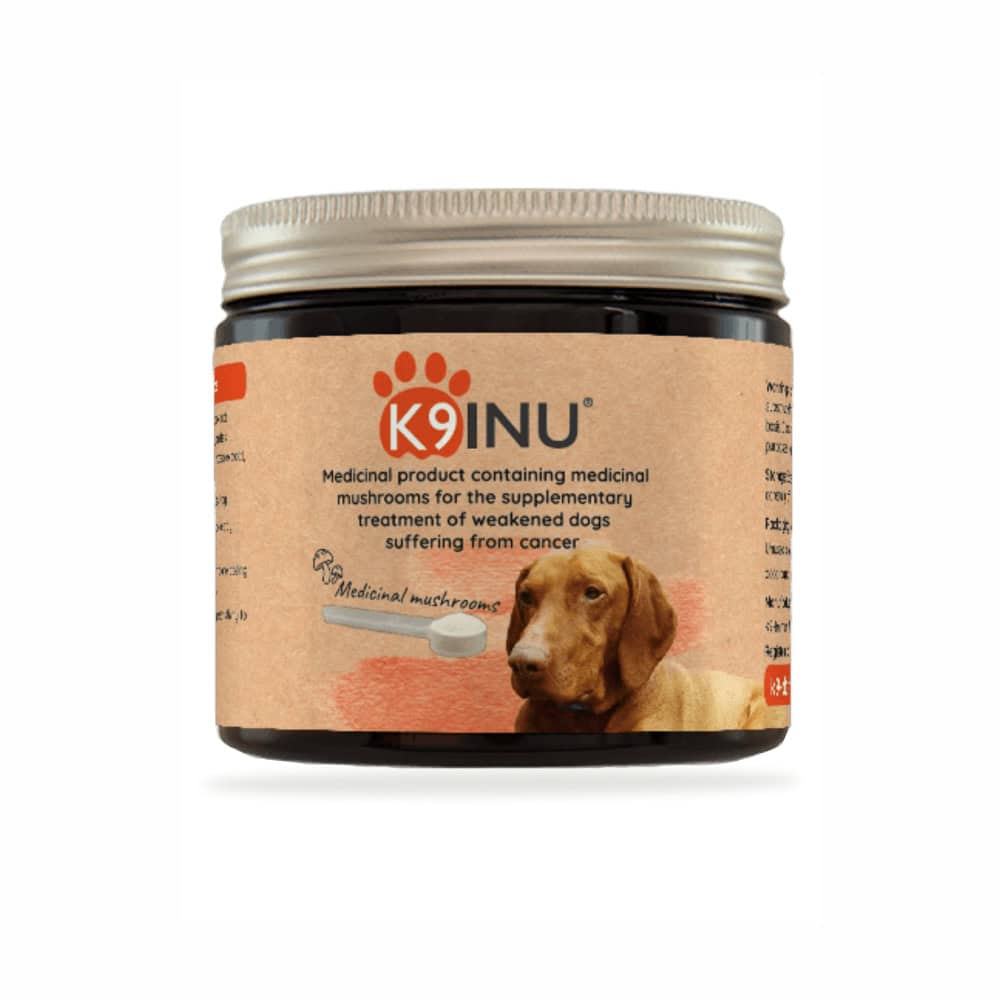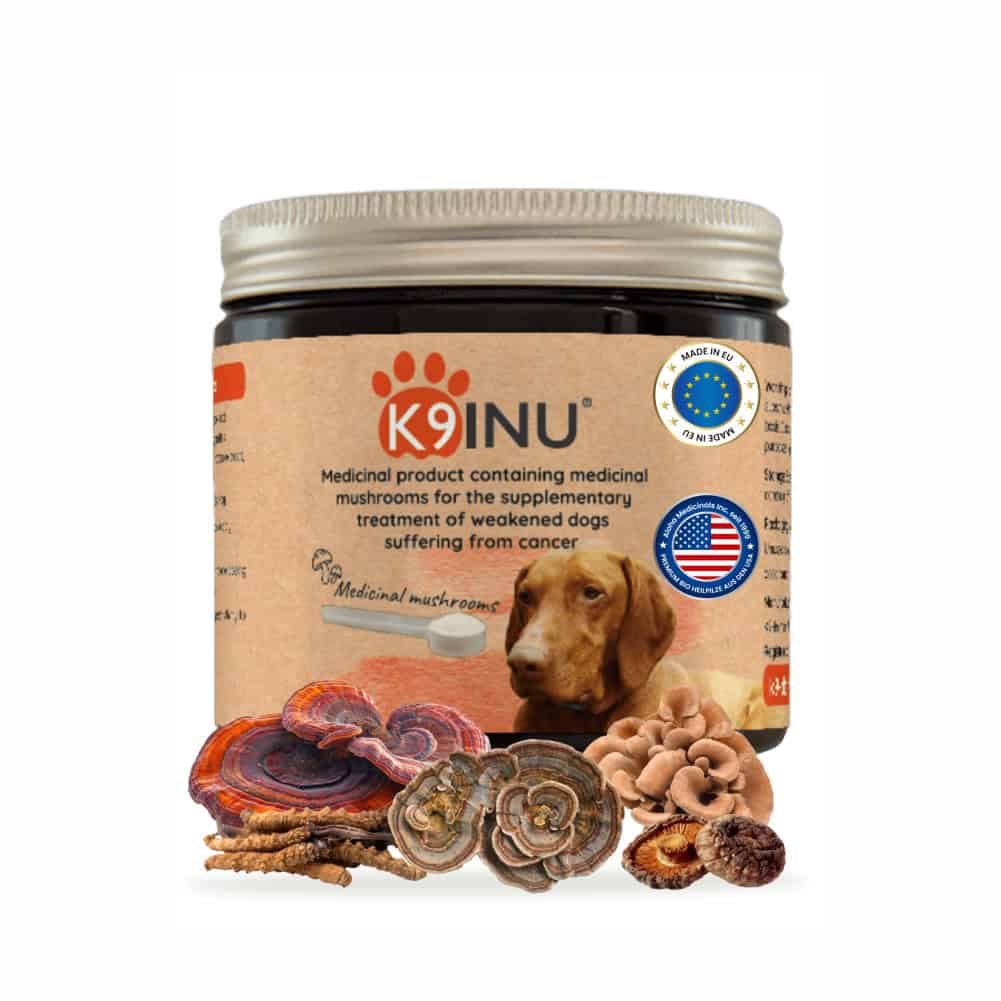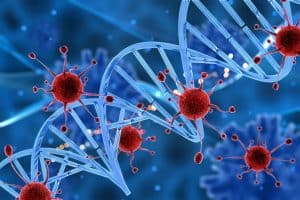Osteosarcoma is one of the most common types of cancer in dogs. It usually develops in middle-aged or older (although it is increasingly common in younger dogs, 2-3 years old), large breeds of dog (Bernese Mountain, Newfoundland, Great Dane, Pyrenean Mountain, Cane Corso, Bernese Shepherd) and is most common in males.
Osteosarcoma is a type of tumour that usually originates on the surface of the bone and spreads from there to the inside of the bone. Unfortunately, the exact cause of its development is not yet known.
Symptoms of osteosarcoma
The symptoms of bone cancer most often occur near the site of the tumour. This is typically around their limbs, ankles and knees, but it can also occur in the ribs and nasal cavity, among others. Symptoms may vary depending on the location of the tumor. There may be bone enlargement in the given place, visible swelling, if the limbs are affected, joint pain, lameness, sneezing in the case of the nasal cavity, nosebleeds, difficulty breathing.
Treatment of osteosarcoma in dogs
The effectiveness of the treatment depends on a number of factors, including how deep the tumour is in the bone and whether it has reached the bone marrow.
he most effective way to treat osteosarcoma is to surgically remove the tumour. Usually, the affected limb has to be amputated, but depending on the location and size of the tumour, sometimes minor local surgery is sufficient. However, this is quite rare.The success of the surgical intervention primarily depends on whether the dog’s immune system is able to fight against the metastasis or recurrence of the tumor. Removal of the tumor by itself rarely means a complete cure, because in 90% of cases the tumor recurs sooner or later, regardless of the success of the operation.
Surgery is often followed by chemotherapy, but unfortunately this is not very effective for bone cancer. Radiotherapy is also used, but this is mostly just to reduce pain if surgery is not possible. However it is important to understand that surgery, radiotherapy and chemotherapy alone will not cure cancer.
It is the body, or rather the immune system, that can defeat the tumour!
Immune system

It is important that the body itself recognises, reacts appropriately and becomes resistant to tumour cells.
Our experience and testing show that conventional treatment (surgery, chemotherapy, radiotherapy) combined with immunomodulatory therapy yields better results. Using products like K9 Immunity™ alongside surgery significantly improves outcomes compared to surgery alone.
Osteosarcoma and strengthening the immune system
Strengthening the immune system is essential in cancer (Lymphoma, Osteosarcoma, Mastocytoma, Hemangiosarcoma in dogs, Dog mammary tumour, etc.) or any other disease resulting from an immune disorder! Until the body reacts to the disease on its own, there is no real cure, only symptomatic treatment.
So many vets say, rightly, that they can only prolong the life of the dog, but the tumour is still there.
Since surgery, chemotherapy, and radiation are so expensive, people often ask if using K9 Immunity alone is enough.
It plays a significant role in prevention, but may not be enough for an existing tumor. Cancer likely develops due to improper immune system function. The tumor then adds further strain to the body. It’s crucial to first remove as many proliferating, degenerated cells as possible with conventional treatments. This relieves the body’s burden. Afterward, immunomodulatory therapy helps “teach” the body to respond properly again. However, we know cases where using K9 INU® and K9 INUFactor® together, without traditional treatments, resulted in a complete cure.
Whatever you decide to do, please discuss any decision with your vet!
A proper diet is essential
Osteosarcoma affects thousands of dogs every year. Experts often link this to long-term nutritional mistakes. Many owners still choose grain-based dog food, even though dogs don’t naturally eat grains in the wild. Their digestive system lacks the enzymes needed to process cereals. As natural carnivores, dogs thrive on meat, not starch.
When their diet doesn’t match their biology, they may miss essential nutrients. This can weaken the immune system and raise the risk of serious diseases—including cancer. If poor nutrition contributes to cancer, feeding your dog properly becomes crucial. Diet plays a key role in supporting dogs through treatment and recovery.
To truly help your dog fight cancer, focus on providing the right kind of nutrition. A product’s price or popularity doesn’t always mean it’s the right choice. Want to learn more? Read our full guide: Feeding a Dog with Cancer.
Find more information about the connection between medicinal mushrooms and dog tumors, the importance of boosting your dog’s immune system, and other symptoms of dog cancer.
Learn more about dog tumor types
